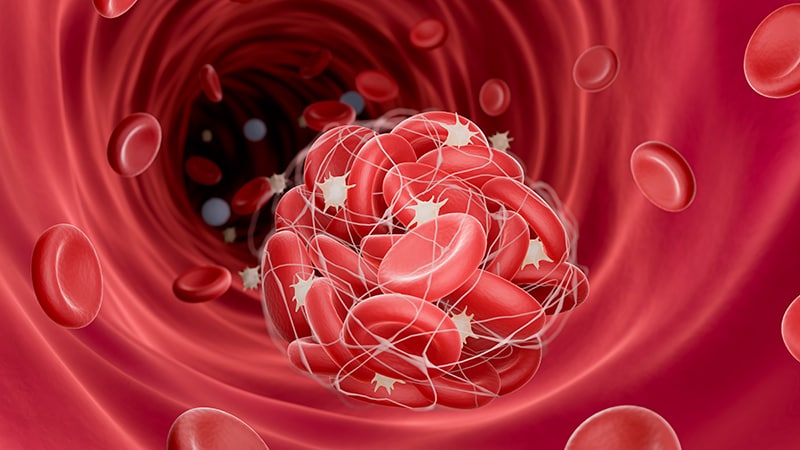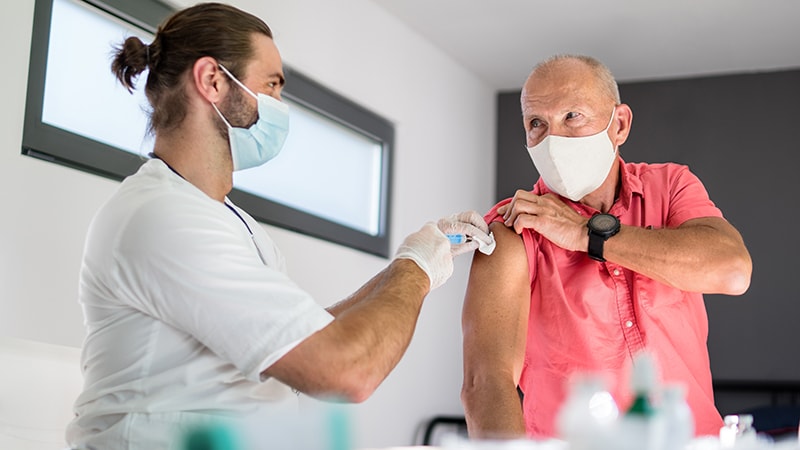
A nationwide analysis of over 2.5 million Scottish adults who received a first dose of the Oxford/AstraZeneca or Pfizer/BioNTech vaccine between December 2020 and April 2021 has confirmed a small increased risk of immune thrombocytopenic purpura (ITP) and other bleeding and vascular events associated with the Oxford/AstraZeneca vaccine.
However, the research, published in Nature Medicine, suggests the risks are comparable with those seen with other vaccines, including vaccines against hepatitis B, measles, mumps and rubella, and influenza.
The authors found that Oxford/AstraZeneca was associated with a slightly increased risk of ITP up to 27 days after vaccination. The estimated frequency was 1.13 cases per 100,000 first-dose vaccinations.
Those at greatest risk of ITP tended to be older (median age, ≥69 years old) and had at least one underlying chronic health problem, such as coronary heart disease, diabetes, or chronic kidney disease.
The analysis also revealed very small increased risks of other arterial blood clot and bleeding events associated with Oxford/AstraZeneca up to 27 days after vaccination. However, there were insufficient data to conclude that there was an association between Oxford/AstraZeneca and cerebral venous sinus thrombosis.
There was no evidence of an increased risk of the adverse events studied associated with the Pfizer/BioNTech vaccine.
The authors emphasise that these findings need to be viewed within the context of the very clear benefits of the Oxford/AstraZeneca vaccine. The risk of developing a serious adverse event is far lower than the risk of serious illness or death caused by SARS-CoV-2, particularly for elderly and other vulnerable populations.
They say further research is need regarding the risks in younger people, as relatively few people 40 years of age or under were included in this study, and to assess responses to second doses of the vaccines.
Professor Aziz Sheikh, director of the University of Edinburgh’s Usher Institute and EAVE II study lead, said: "This careful analysis of an entire country’s vaccination programme, which involved the study of over 2.5m first dose vaccines, has found a small increase in the risk of ITP, clotting and bleeding events following the Oxford-AstraZeneca vaccine. This very small risk is important, but needs to be seen within the context of the very clear benefits of the vaccines and potentially higher risks of these outcomes in those who develop COVID-19."
'Extremely Rare'
The Medicine and Healthcare products and Regulatory Agency (MHRA) received 209 reports of thrombocytopenic cases and thromboembolic cases after 22 million first doses and 6.8 million second doses of the Oxford/AstraZeneca vaccine.
Commenting via the Science Media Centre, Dr Doug Brown, chief executive of the British Society for Immunology said: "The occurrence of ITP after the first dose of the AstraZeneca/Oxford vaccine appears to be extremely rare – around one in 100,000 – and, as with other potential side effects of the COVID-19 vaccines, this risk remains far lower than the risks of serious health effects associated with COVID-19.
"It is important to note the limitations of the study, including the stage of the vaccination programme at the point of analysis (some individuals had received the second dose of the vaccine and few young people had been vaccinated), limited access to hospital medication records and the difficulty of ITP diagnosis. We therefore need to gather and analyse more robust data before we can know whether the AstraZeneca/Oxford vaccine induces this specific disorder."
This article was adapted from Univadis, part of the Medscape Professional Network.



